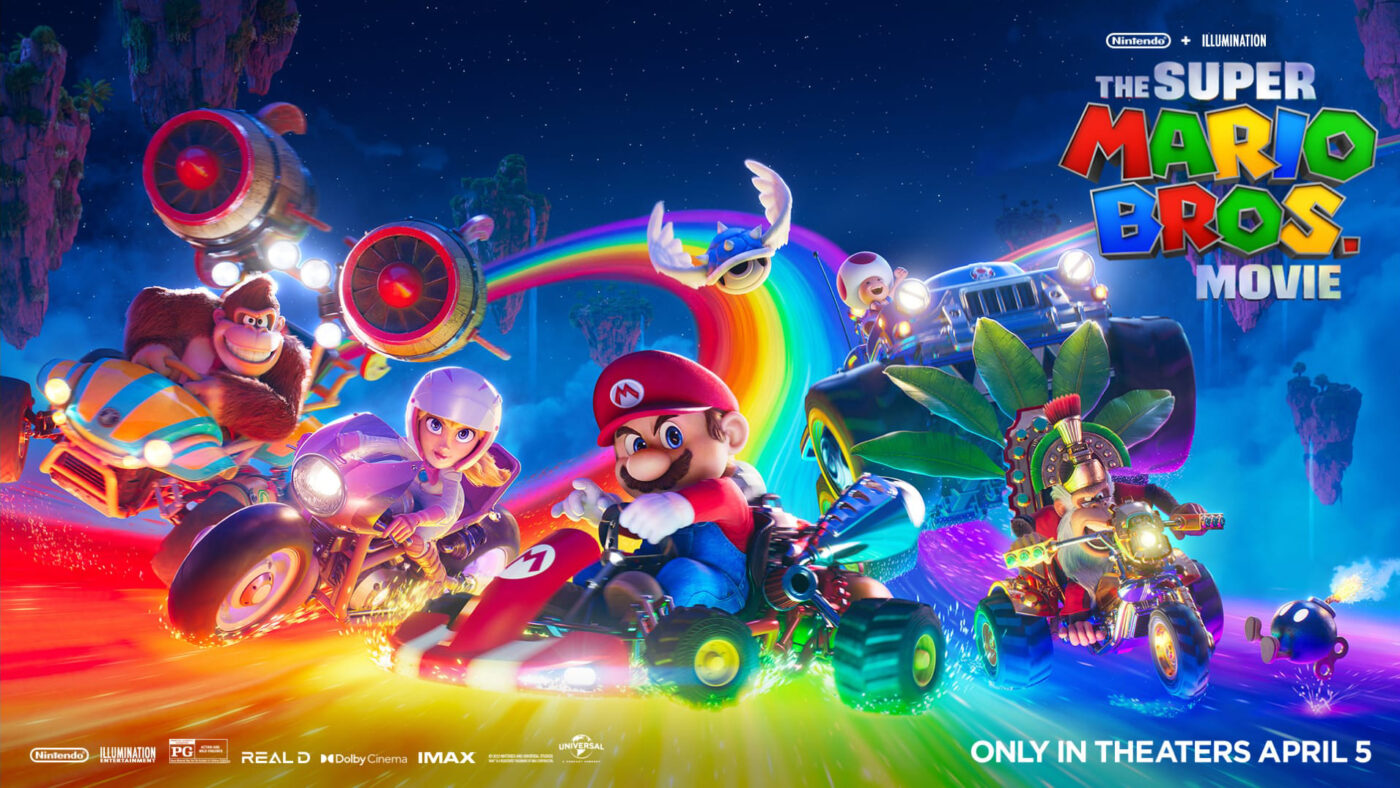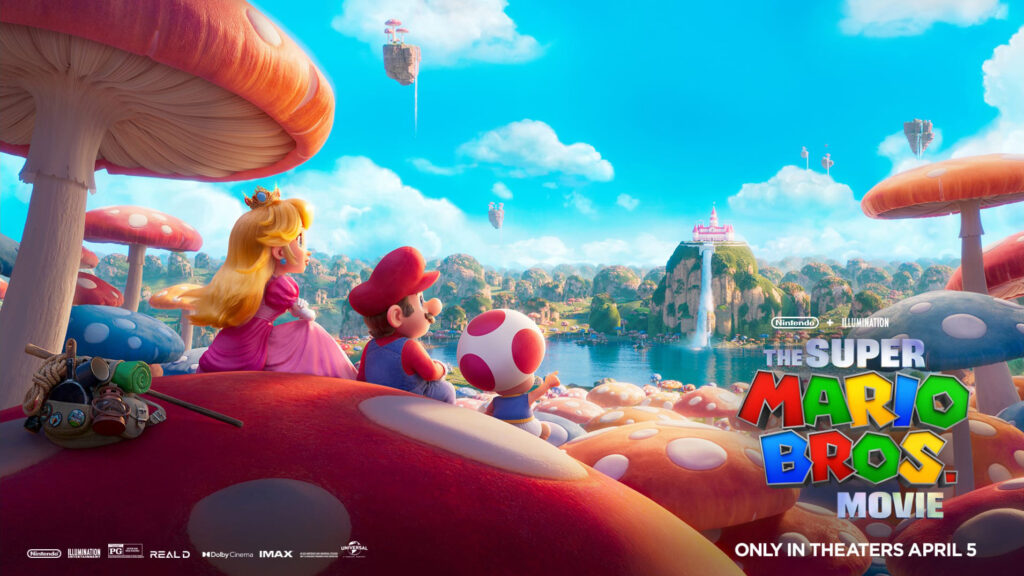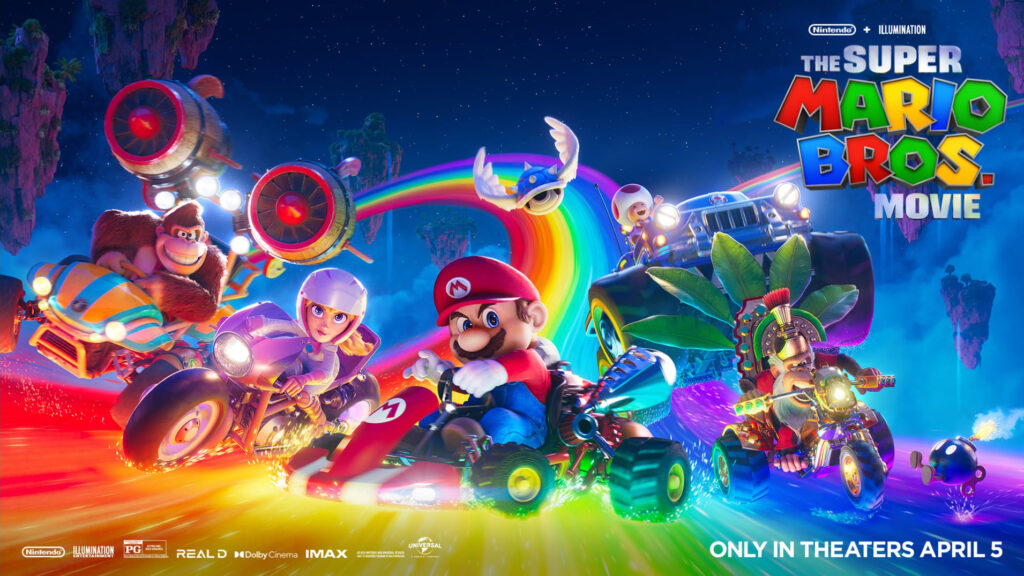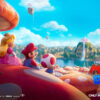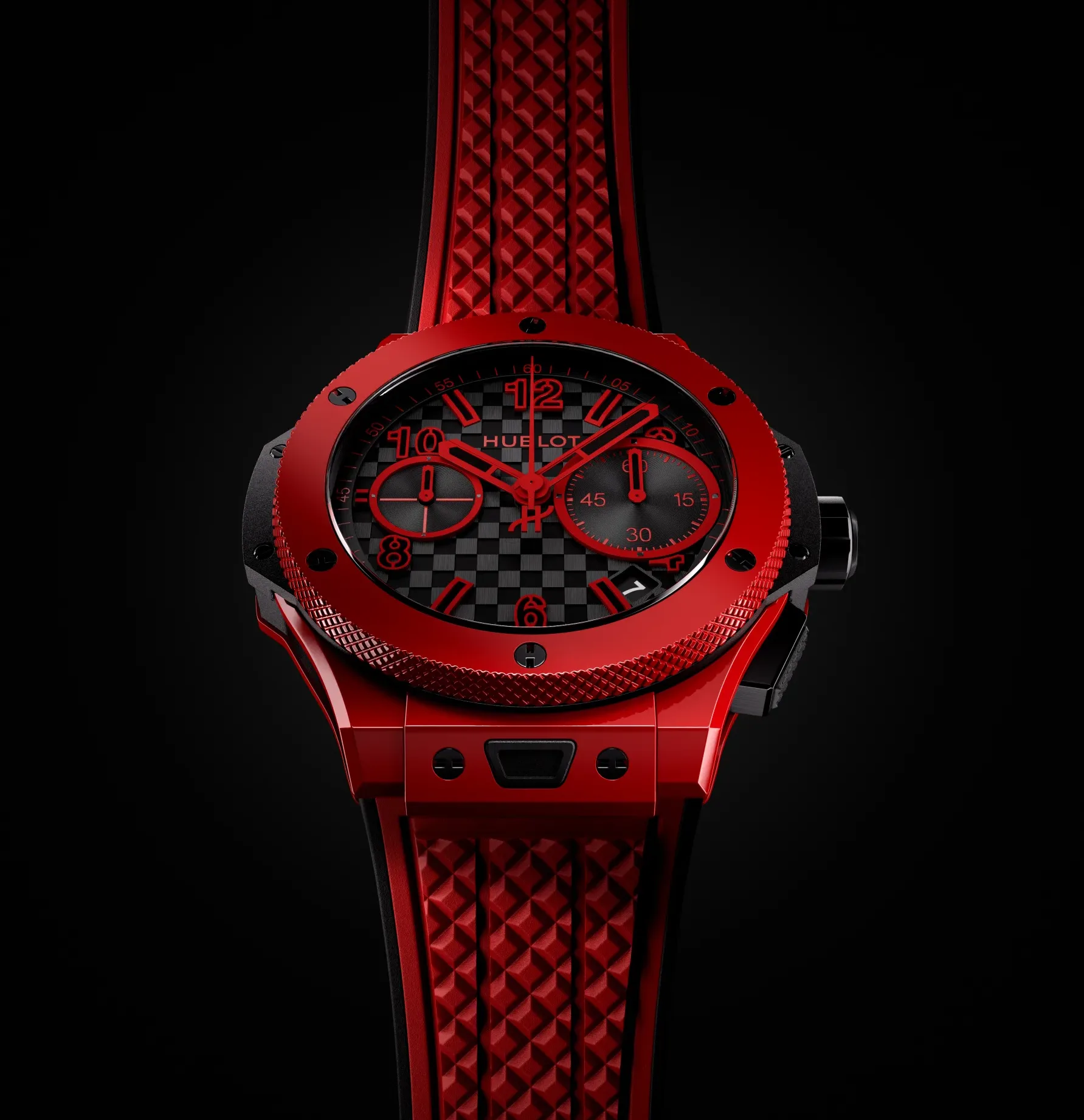BY HARLAN CHAPMAN-GREEN
Wait, what? An article that isn’t about watches? You know it. Having read the comments from you, our audience, and interacted with you for a while now, we realised that you valued our thoughts and how we present them. So, we thought we’d have a go at branching out and writing a review of something other than a wristwatch.
We here at WristReview are big fans of movies, although Jovan moreso than myself. Sure, I like to sit down and watch something on the silver screen or rent a movie through Amazon Prime, but he enjoys movies (and being critical about them) more than I do. We’ve talked before about writing about something other than wristwatches, and the recent release of The Super Mario Bros. Movie prompted me to bring it up again. If this is something you like and want to see us do more of, please let us know in the comments. So, here we go.
There are plot spoilers ahead.
The Super Mario Bros. Movie is the second attempt at taking the moustachioed plumber, one of gaming’s most iconic characters, and adapting him and his world to the silver screen; the less said about the 1993 live-action film, the better. Directed by Aaron Horvath & Michael Jelenic (both of whom collaborated on Teen Titans Go! amongst other projects), The Super Mario Bros. Movie is 92 minutes of childhood fun and colours with a few noticeable weak points.
Fans of the Mario franchise will note that this film deviates from games of the past for certain details. For example, Mario and his meek brother Luigi are shown as adults living in Brooklyn, New York, with their extended family in a traditional Italian household. In the games, a stork delivers Mario as a baby to the Mushroom Kingdom, the fantastical land where most of the film takes place. It’s been a long time since I’ve played the older Mario games, so that detail slipped my mind until I began researching for this review, so only the biggest fans of the short plumber are likely to notice, or care about, that detail.
What they are more likely to care about is the film’s main downfall, which appears within the first five minutes of runtime. The voice acting of The Super Mario Bros. Movie could be described as dodgy at best, and this drags through it to the end. Mario, voiced by Chris Pratt (The Lego Movie, Guardians of the Galaxy), has a short TV advert with his brother where he sounds like the Italian-accented plumber we know from the games, but this is only for that in-film advert, and he quickly reverts to somewhere between an American and an American-half-heartedly-doing-a-New York accent, it’s all over the place. This is exemplified by an early appearance from Charles Martinet, the man who voices Mario in the games, who does it much better in just one line of dialogue. It sounds like Pratt wasn’t sure what Mario was meant to be feeling at most points, and he comes across as disjointed and bland. However, this is somewhat balanced out by Charlie Day (Pacific Rim, The Lego Movie) as Luigi, who sounds like he’s having a blast and is convincing from start to finish.
I appreciated the sequences within the opening segment, including a clever nod to Mario games of the past using a single sliding camera keeping pace with the main man as he runs along the streets of New York. While the film begins in Brooklyn, it quickly moves along to the Mushroom Kingdom thanks to the iconic pipes which transport Mario around levels in the video games. Remember when I said Charlie Day mostly balances out Chris Pratt? Well, from here on out, Luigi has very little to do. It feels like a missed opportunity.
The film introduces us to Toad early on, voiced by comedian Keegan-Michael Key (Pitch Perfect 2, Toy Story 4). Toad, a resident of the Mushroom Kingdom, is one of the best characters in the movie because he moves things along but doesn’t end up stuck in the background of every scene, is funny, and Key delivers a great vocal performance. This is, predictably, balanced out by Anya Taylor-Joy (Peaky Blinders, Emma), who sounds as if she’s bored out of her mind delivering the lines of the Mushroom Kingdom’s leader, Princess Peach. It seems like the writers fell into a trap with Peach. Traditionally, she is the damsel in distress in the Mario games, but here she beats obstacle courses and defeats super powerful enemies at the first go. The only journey Peach goes on is the physical one around the Mushroom Kingdom, there doesn’t seem to be any learning or epiphanies on her part.
I haven’t mentioned the film’s visuals yet; they’re breathtaking and exactly what I’d expect from a movie about Mario. While I agree with others that many animated films use the same pudgy-faced art style, this is to be expected from The Super Mario Bros. Movie as it fits with the style of the games (except for the older ones, and the Paper Mario games, of course). Every shot is composed well and reflects the theme of the set the characters are in whether it’s the bombastic colours of the Mushroom Kingdom and its residents or the dark and creepy wastelands of Bowser’s Dark Lands.
The highest point of The Super Mario Bros. Movie for me is its villain, Bowser. Having been a staple of Mario games since 1985, this character has been through many changes from villain to comedic farce to fully-fledged supervillain. For 95% of the scenes he’s in, Bowser takes centre stage with a surprising variety of facial expressions being unexpected for me (he reminds me of Po from Kung Fu Panda in some places, but that might just be me). It’s good to see that he is being used as a proper villain, even if he does have some moments that caught me off guard and made me chuckle. Bowser’s motivation throughout the movie is a little weak, but it is also consistent with some of the video games.
However, the main reason Bowser is so memorable here is his voice actor, Jack Black (Kung Fu Panda franchise, Jumanji). This film reminds us why we must put a protective forcefield around Black to stop anything terrible from happening to him. He sounds evil when he needs to, roars when he needs to and is convincing throughout the film, even in the hysterical and silly solo song “Peaches”, which is Black’s first solo single to chart on the US Billboard Hot 100 at no.83. Has this song replaced “Let It Go” as something for kids to annoy their parents with? I hope so. It’s definitely going to be a meme song for a while, regardless.
Donkey Kong, voiced by Seth Rogen (Kung Fu Panda franchise, Steve Jobs), appears as a lead character with good voice acting and some good lines. However, he lacks charisma when interacting with Mario, and his reason for disliking the plumber is left as a mystery.
The final showdown scenes are good, although it’s difficult to understand why the residents of Brooklyn seemed so relaxed about the appearance of Bowser, his minions and a giant gorilla. Only those who have never played a Mario game may not expect the outcome of the final battle. Exactly how a sequel would pick up from this ending is unclear, although if Bowser is to be the main villain again, expect a short scene that uses magic to get him in the right place.
As well as the visuals and certain actors, the audible callbacks to the Mario games are also highlights. Scored by Brian Tyler (Fast & Furious franchise, Call of Duty: Modern Warfare 3), the music features all the musical nods you could ever need from games, including colourful tracks to match the Mushroom Kingdom, dark and brooding tracks to match the Dark Lands, and the “Gusty Garden Galaxy” theme from Super Mario Galaxy, which is a personal favourite. Honestly, with so much source material to work with, and input from Nintendo staff, such as Koji Kondo (who wrote the music in the first place), it would be hard to see how they could go wrong. Thankfully, they didn’t. The film also uses a wide variety of tracks from the likes of AC/DC, Bonnie Tyler, ELO and more; these don’t always seem to fit the film but aren’t too jarring.
In summary, The Super Mario Bros. Movie hits some nails on the head. While I am a lifelong fan of the Mario games, I realise that I’m not the target audience for this film, but I still enjoyed losing myself in a franchise close to me. If you were hoping for an animated movie that balances colours and comedy for kids with some deep and meaningful points that make adults think, as Kung Fu Panda masters, you won’t find it here. While some characters have deep motivations, such as Mario’s dedication to his brother and Princess Peach’s to the Mushroom Kingdom, it glosses right over others, such as a line Bowser shouts in the final battle about how he’s suffering (presumably because he doesn’t have the Princess), but this is never explored anywhere else. The story is okay, but I don’t think it has much re-watchability. I also refuse to touch the confusing character that is Lumalee, whose apparent love of suicide is absurd and not suited to this film. Details which jar you out of your focus, such as this and the contrast in voice-acting ability/persona, bring down this film, but as it’s done so well at the box office, a sequel is undoubtedly on the table. Hopefully, those details can be smoothed out then.
What did you think? Would you like to see different content like this from us more often? Please let us know!

